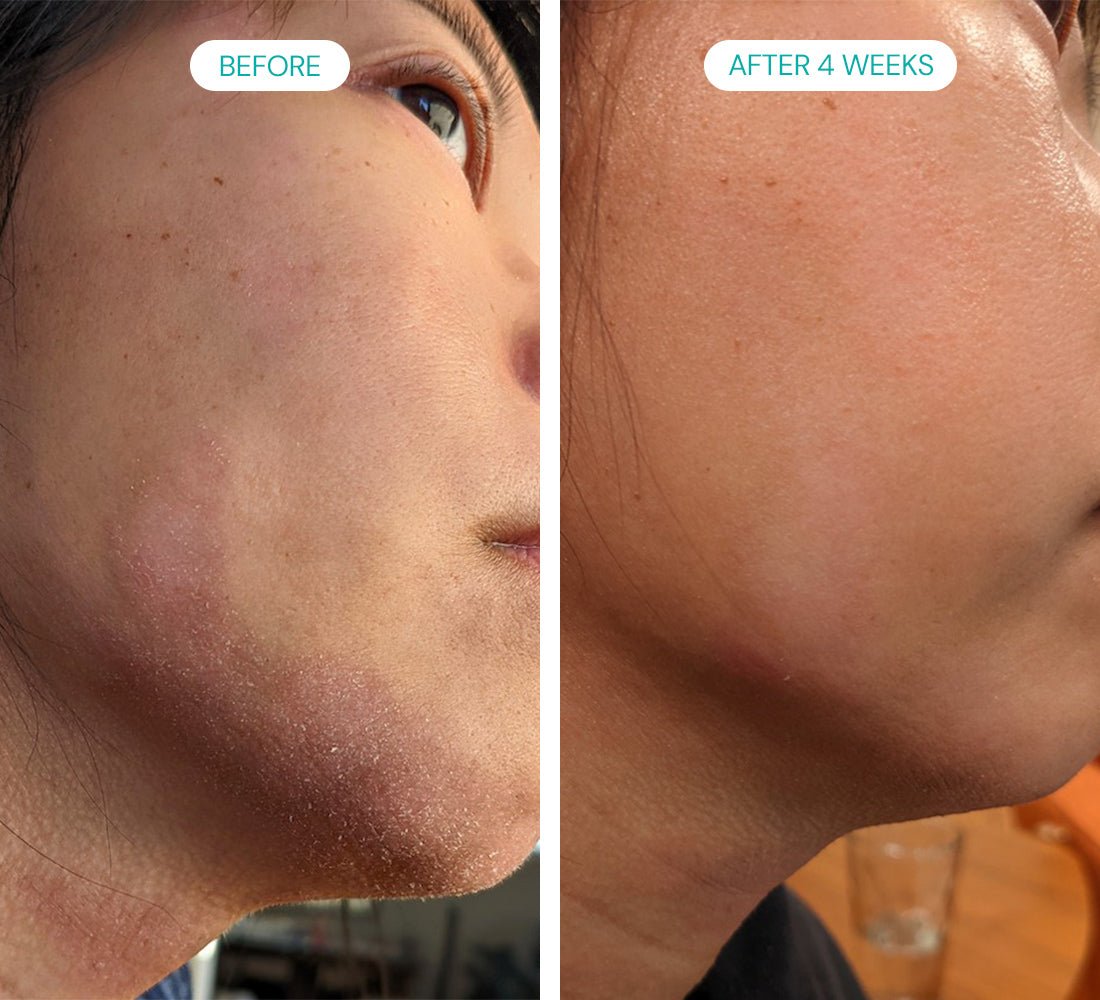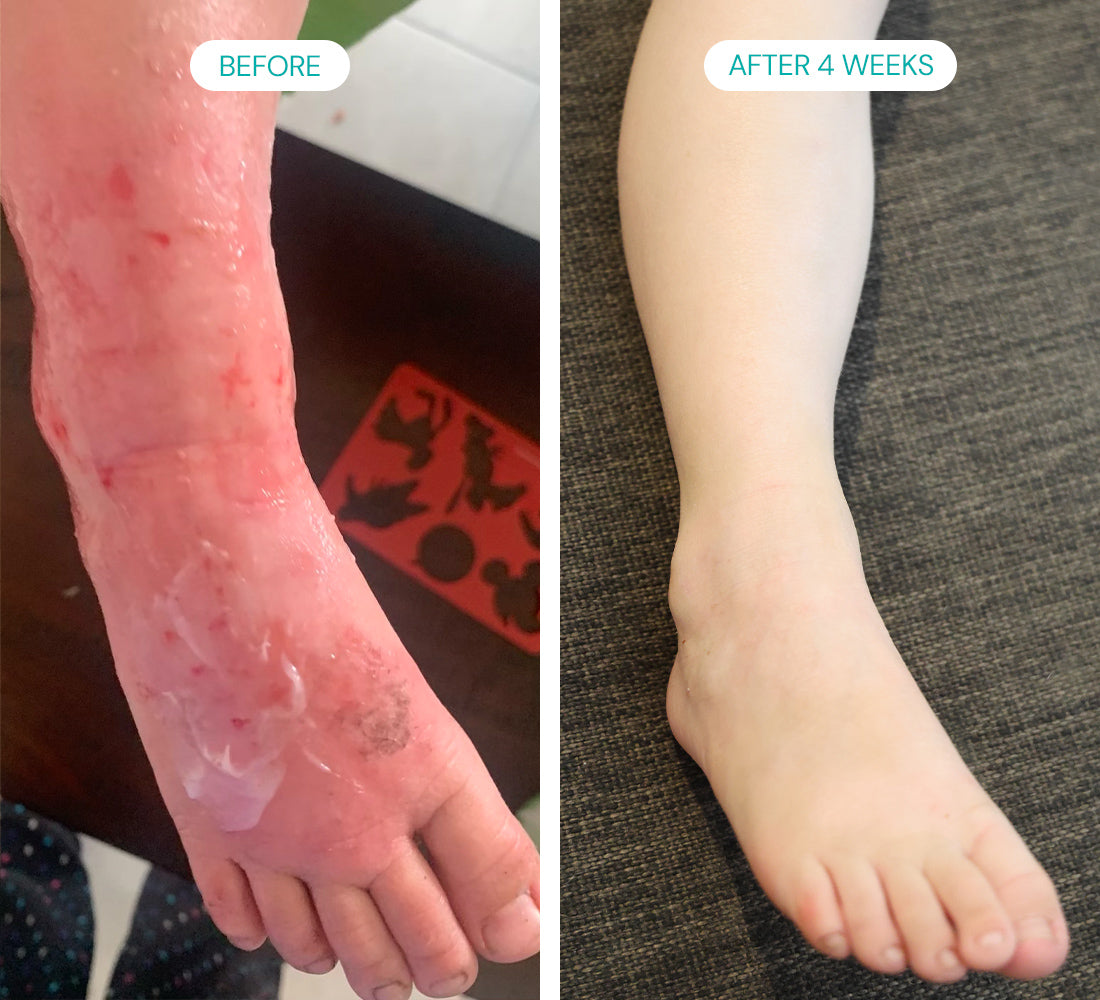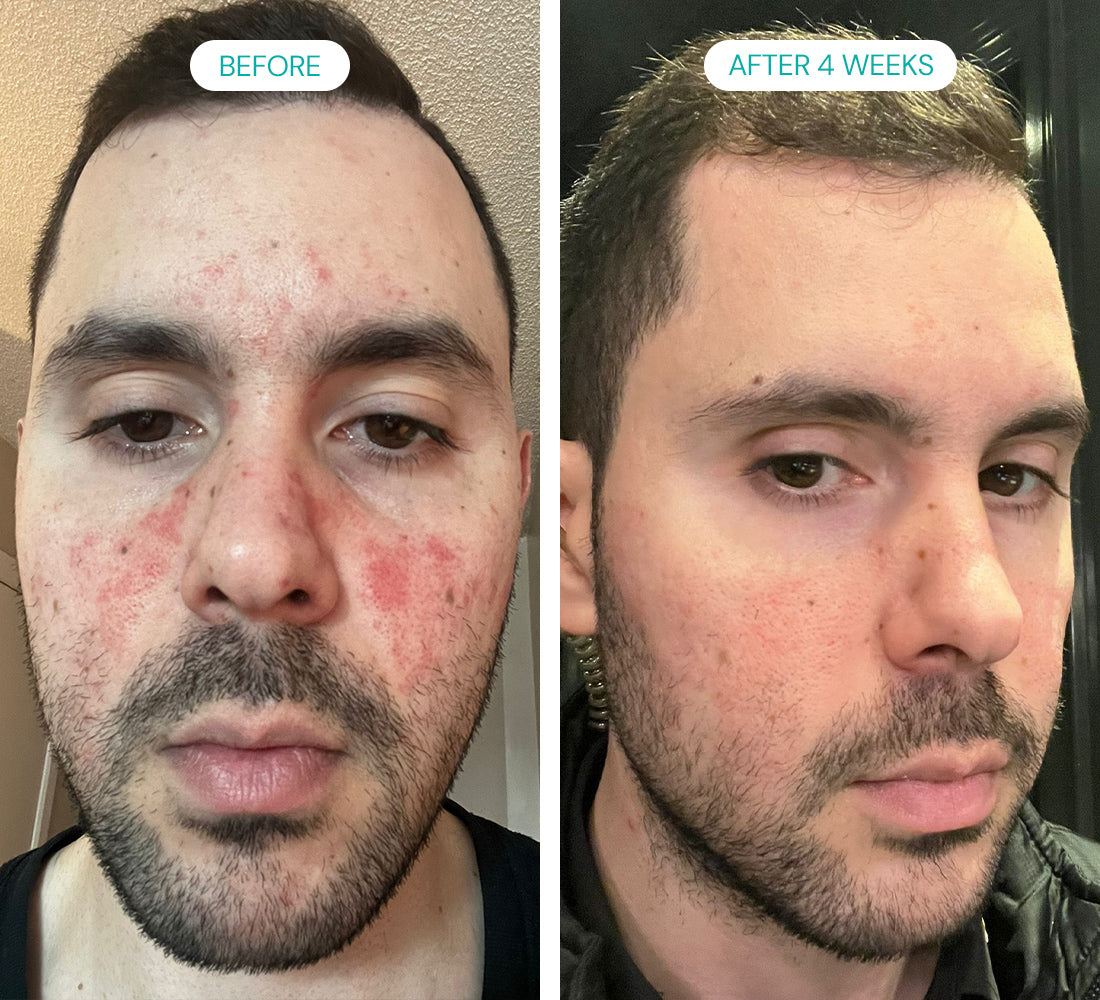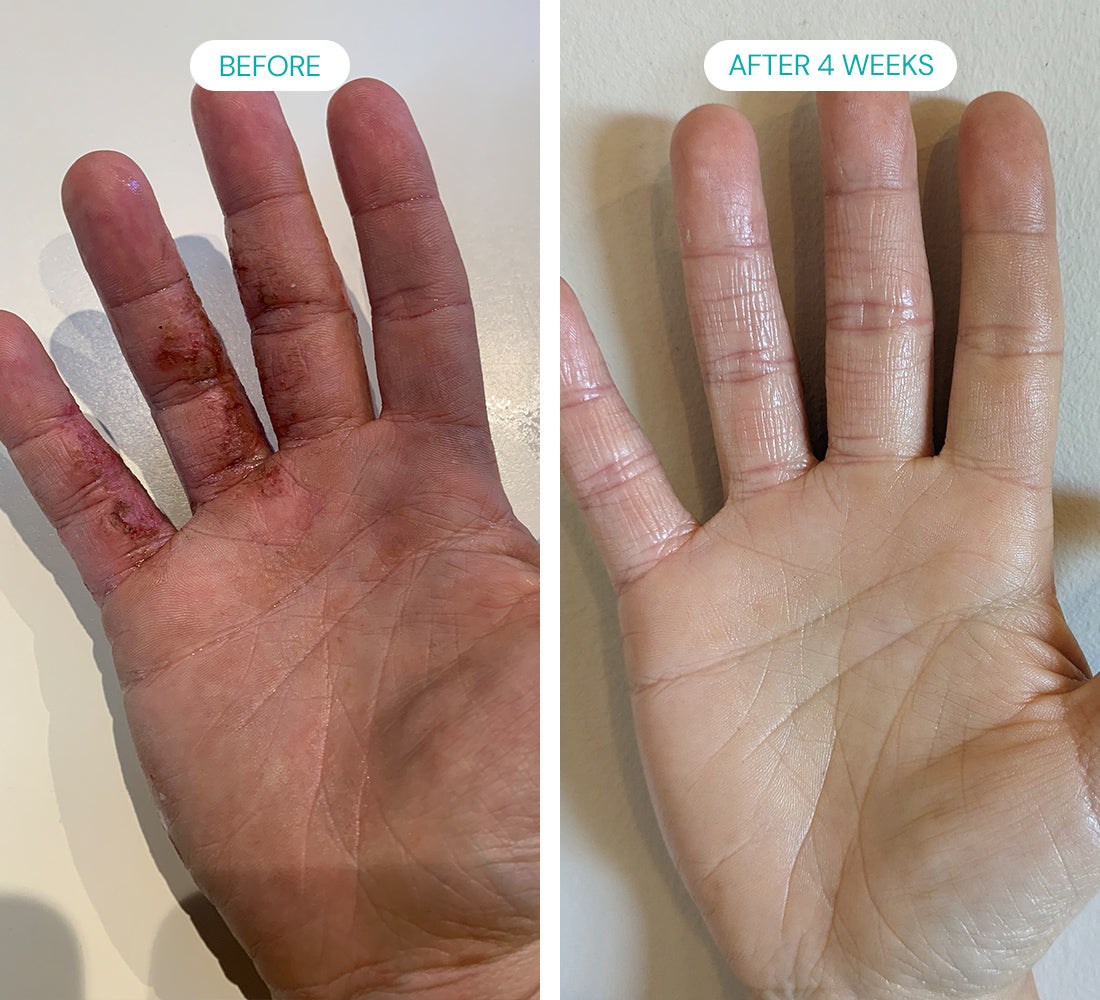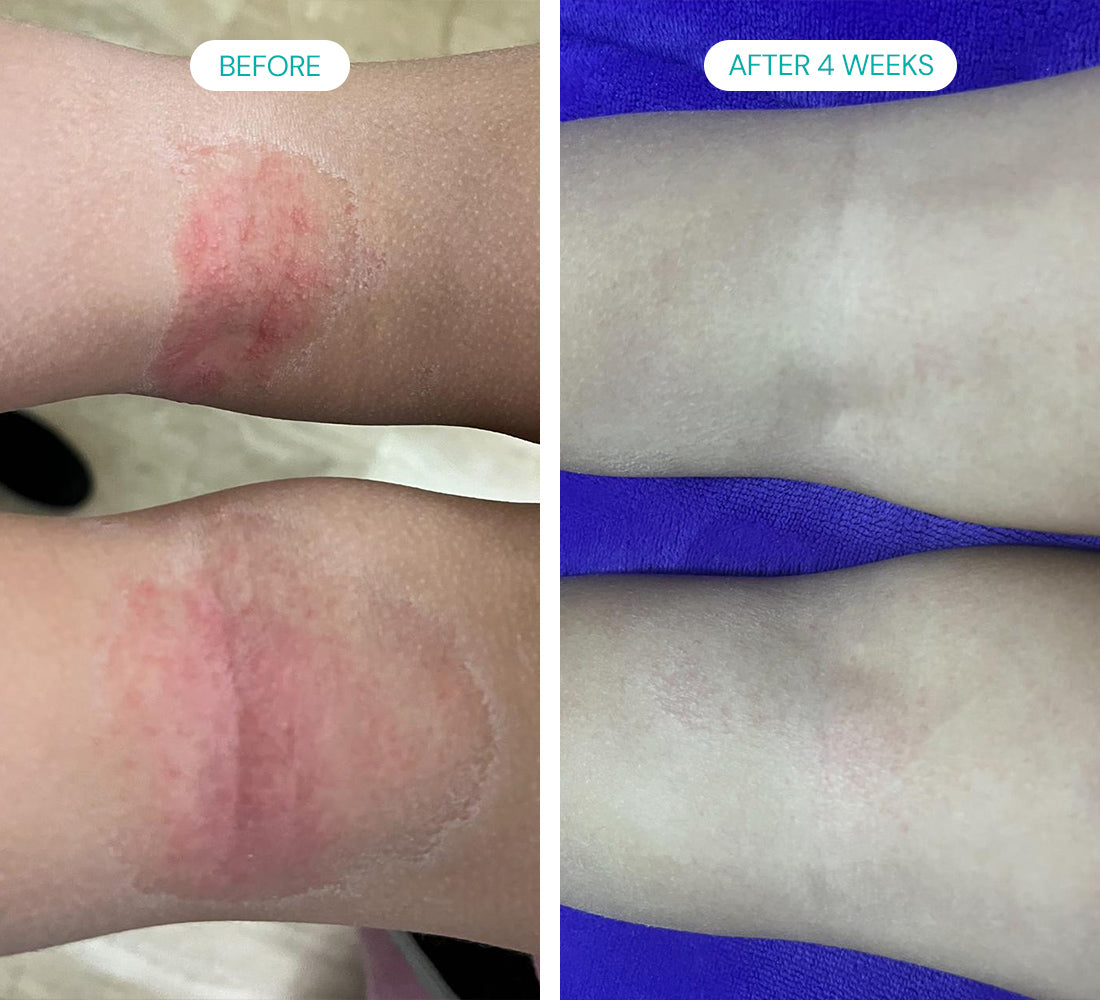








CLINICALLY PROVEN
Eczema Free
in 4 weeks*
*In a 4-week clinical study of eczema sufferers:
Key Ingredients
Real Customers,
Real Reviews.
Frequently Asked Questions
Yes — the Soteri Skin Long Term Eczema Relief Cream is safe for children ages 5 and up. The formula has undergone rigorous safety, stability, and microbial testing to ensure it's gentle yet effective. Soteri Skin Long Term Eczema Relief Cream also carries the National Eczema Association Seal of Acceptance, a trusted mark for eczema-prone skin.
Yes — mild tingling can happen on irritated or flaring skin and means the pH/LOCK® technology is working. If you're flaring, start with Soteri Skin Active Flare-up Eczema Relief Cream, which is gentler. As your skin heals, the tingling fades, switch to Soteri Skin Long-Term Relief Cream, clinically tested to support long-term barrier repair and flare-up prevention.
Yes — our formulas are safe, non-steroidal, and dermatologist-tested. They carry the National Eczema Association's Seal of Acceptance and are designed for sensitive, eczema-prone skin.
Soteri Skin was born from our founder's journey: his wife, Samantha, struggled with severe eczema during pregnancy and wanted a steroid-free solution. Dr. Rafal developed the first pH-restoring formula, which healed her skin barrier in just 4 weeks. That same science-backed solution is now available to support safe, effective relief for others during pregnancy and beyond.
Soteri Skin Long-Term Eczema Relief Cream is safe for daily, long-term use. It keeps your skin's pH balanced and strengthens the barrier to prevent future flare-ups. Since eczema often has a genetic component, ongoing use is recommended to maintain healthy, resilient, flare-free skin.
One bottle of Soteri Skin Eczema Relief Cream typically lasts 30 days when used on affected areas. If applied more generously or over larger areas, you may need to purchase more frequently. For convenience, we recommend subscribing to two bottles monthly so you never run out.
Water, Butyrospermum Parkii (Shea) Butter, Glycerin, Helianthus Annuus (Sunflower) Oil, Cetearyl Alcohol, Sodium Citrate, Ceteareth-20, Citric Acid, Oat Amino Acids, Niacinamide, Dimethicone, Colloidal Oatmeal, Ceramide NP, Ceramide AP, Ceramide EOP, Sodium Lauroyl Lactylate, Cholesterol, Xanthan Gum, Caprylyl Glycol, 1,2-Hexanediol, Phenoxyethanol.
We recommend using one of our lighter formulas on the eyelids — like the Active Flare-Up Relief Cream or the Baby Eczema Relief Cream — since the skin around the eyes is thinner and more sensitive.
Yes. After cleansing, Soteri rebalances your skin's pH to the optimal level. Choose a gentle, sensitive-skin body wash, and always apply Soteri after each wash. Avoid layering other moisturizers in between, as they may disrupt pH balance.
We don't recommend adding other skincare products, as they may reduce Soteri's effectiveness. Soteri already hydrates while rebalancing skin pH. For extra support, try a black tea compress before applying — it can help soothe facial eczema and works well alongside our creams.


